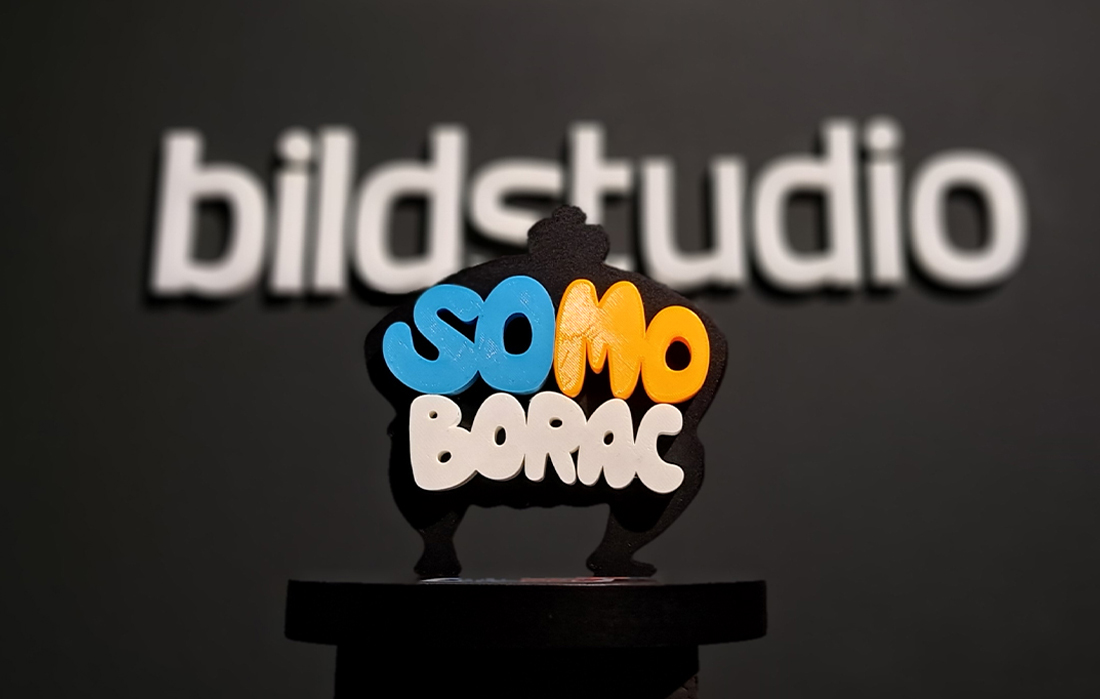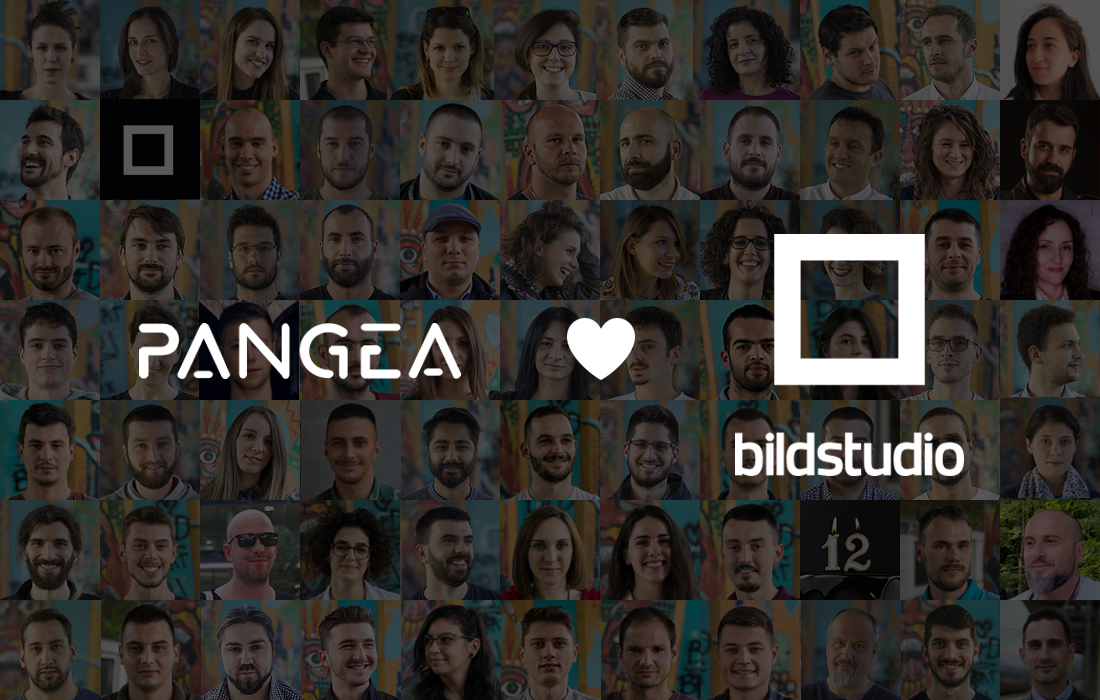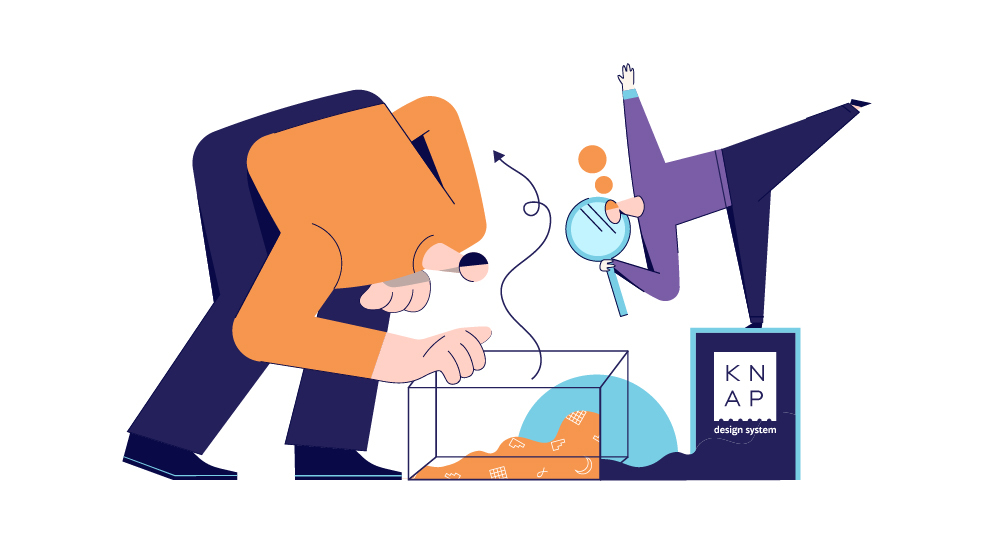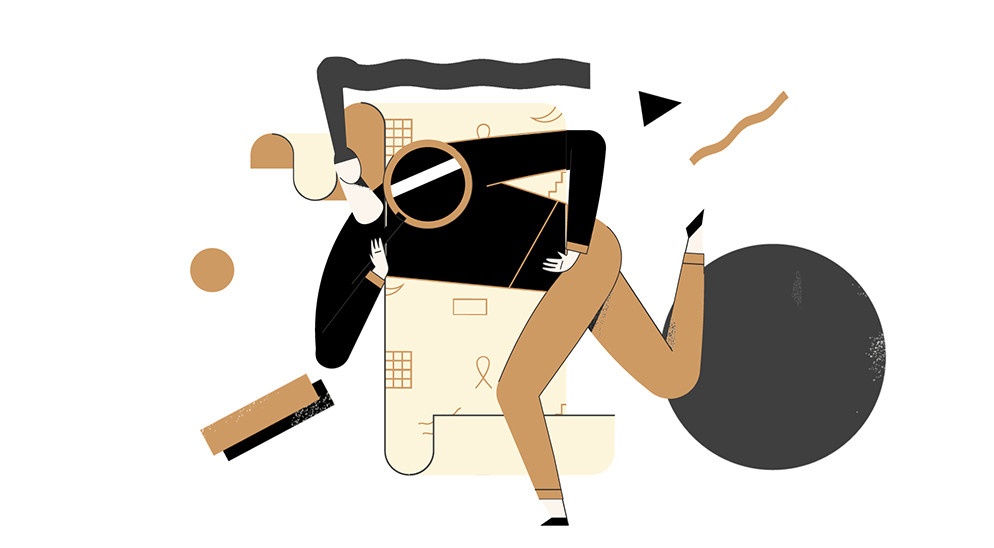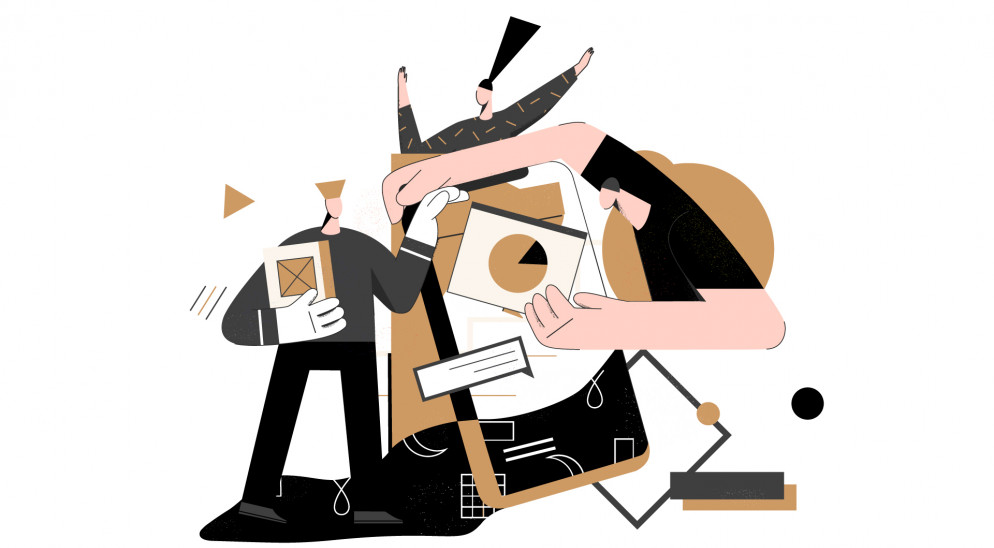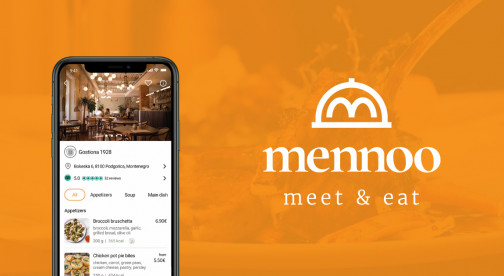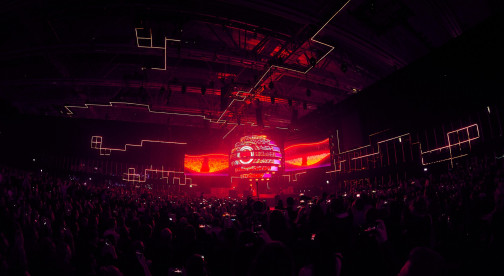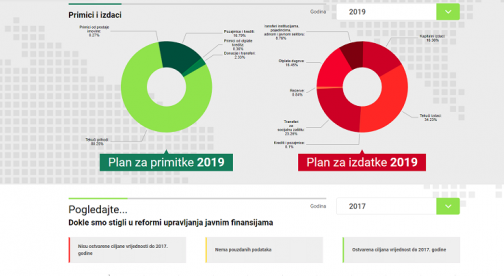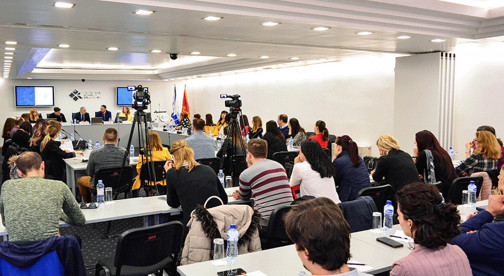The Marketing Manager should “only” coordinate team members and their activities. Yes, this means only to coordinate the media buying, event management, copywriting, market and competition research and drafting strategies for various clients… And we mentioned only a small portion of work for which the person in this position is responsible for. Therefore, we decided to talk with Dženita Brčvak, Head of Marketing and Project Manager at Bild Studio to get to know a little better what a marketing manager actually does.

Dženita is member of our team for 2 years. She started her career in Bild in the position of Project manager, but since December 2016. she heads the Marketing department of the company. Her friends accuse her she doesn’t know how to rest, but they also say that her energy is simply contagious and brings a smile to everyone’s face. Team members don’t call her boss but mother, and now we are going to tell you how our Dženi managed to switch from one position to another, what her regular workday looks like, and what challenges she is facing every day. :)
1. The marketing field is very wide and someone who covers the position of Marketing Manager has to keep all the strings in his or her hands. As someone in this position, can tell me more about contents of your work?
Hm, I hardly keep all the strings in my hands, but I’m trying to do my best, if that counts. :) Marketing Manager, like any other manager, mostly deals with organization, planning and resource management, and more than anything, he or she conducts evaluation and monitoring. Although you should always keep up with all the novelties, both in industry and within your team and company, unfortunately you have very little opportunity to actually do with the core of your field. Since Bild’s marketing services are rather diverse, my team and I are dealing with various obligations and few of them are: negotiations with clients, sales meetings, market and competition research for Bild and for clients, making advertising strategies for different marketing channels, media buying, event management, copywriting, managing public relations and perhaps the most demanding, managing projects funded by the EU, which imply constant commitment to the implementation of project activities and detailed reporting. For information about the indications, warnings and tolerance or long working hours please contact my team. :)

2. How do you organize all these obligations? Is there a tool that helps you with implementation and evaluation?
A good plan is half of the work. Since I came to Bild Studio, I organize my time and tasks through Jira Atlassian software for agile project management. Jira is an amazing tool which enables you to organize the full project cycle, define deadlines, specify human resources, delegate assignments and constantly monitor the progress of each task and/or team member. Besides that, Jira allows commenting, files attaching, gives you the ability to generate various reports and has an integrated portfolio planner and a very important option – work log. Truly perfect tool for managing projects, especially projects in IT, design and marketing, where every minute is precious. Jira comes with Confluence, tool for archiving and systematization of documents. I use this tool every day, since it makes collecting files and overview of the entire project much easier, which is very important, especially if you deal with complex and extensive projects, which we have many. However, despite all these IT tools, even today I am not immune to write the most important duties down in my planner and cross them with pleasure at the end of the day when (and if :) ) I finish them.

3. What are the key characteristics of the person doing this job?
It is difficult to single out a set of qualities that good marketing manager should possess, but it certainly has to be a person who is communicative, positive, creative, well-read, tolerant, but also very responsible, and able to react quickly and prudently. Now I only have to get all these qualities. :) Joke aside, in my opinion, a marketing manager has to be a team player, committed to all its members and eager to take responsibility for the mistakes made in the work, meaning he or she is ready to step before the client and take all the critics. There is no place for individuality. Team is everything and one has to take care of it.

4. Marketing trends are changing rapidly, so can you tell me how do you keep up with them and how do you improve yourself for the job you conduct?
Trends are indeed changing so fast in digital marketing and I must admit that my biggest challenge is to keep up with everything that is happening on the global scene, as marketing is, more than any other industry, merciless to late reactions. Since digital marketing is quite young, the only and the most accessible source of information is the Internet, so I try to take at least 30 minutes or an hour a day to read online blogs about new trends. My list includes regional magazines such as Netokracija and Media marketing, but more often I reach for articles published by MarketingProfs, Moz, Convice&Convert, etc. Of course, there are unavoidable online courses, which are now very available, so my team and I often follow courses on Coursera, Google, but also on Udemy. Most often, though, I learn on new trends my team members, who are trained in various areas and who read about developments in this area on a daily basis. Frequent transfers of knowledge are invaluable, both to saving time and for mutual upgrade of the team and strengthening team spirit. We adore these processes and insist on them in our sector.

5. Ideas are crucial (and the most expensive) in marketing, so tell me how do you come up with them and how do you exchange them with your team members?
Is there a recipe for ideas at all? To come up with a good idea is the hardest task of anyone who is engaged in marketing, regardless of the channel he or she uses. Frankly, the ideas usually come spontaneously from a team, a colorful group of dreamers :). The most beautiful and best ideas are colluded together during a brainstorming, where one word or phrase becomes a trigger for devising serious campaigns and ejecting a handful of proposals until we find a perfect one. And when Design gets involved in the whole story, we have a perfect match. :)
6. How does your average working day look like and what challenges do you face with on a daily basis?
Average day: from client to client. Just kidding, the morning begins with biiiiiiig cup of black coffee without sugar, a dose of laughter with the team just for beautiful start of the day and then follows the endless scrolling through notifications on social networks and reading the unread emails, a little of proofreading and revision, a meeting, sales offer, again a little of revision, another (un)planned meeting and unavoidable finance. Did I mention the constant communication with clients? That, too. To sum up, every day is pretty dynamic and that’s what drives me. It’s never boring, that I can guarantee you. ;)

7. I’m sure that after the working day, which often lasts more than 8 hours, you need a rest and relaxation or you keep the same pace in your free time, too?
My dear friends accuse me that I don’t know how to rest. : / After a hard day I (literally) run on more strenuous workout. :) Cross-fit, tae-bo and a handful of different fitness trainings 5 times a week is what relaxes me and what I don’t miss, except in special cases. Hence, my fellow co-workers often see me, dressed up in fitness equipment, running down the Bild stairways to get to the gym on time. After that, I run again to meet up with friends for an hour or two. So, in fact, I run all the time. :) Besides, for a marketer, a good book for the perfect closure of the day is essential for nurturing the different writing styles and enriching vocabulary.
8. And does Marketing rest on weekends or your sector is on standby 24/7? :D
Basically we are all on standby all the time. We often communicate with clients and followers at 10 or 11 p.m. We coordinate each other, boost posts, comment and respond to inquiries. I think you should ask members of our team about this, but somehow it seems to me that none of us finds it hard. ;)
9. Your job seems ideal to me, but can you stress 3 not-so-good sides of your job?
- An endless number of notifications on all possible marketing channels. Remind me, what’s private profile? :)
- Lack of courage of companies in the local market to support bold ideas. There is nothing sadder than having to soften an idea which we have or putting in a drawer for some better times.
- Constant stress and constant strive to meet the needs of clients who want it all and want it now. Marketers of all countries, unite! :)

10. All people in your team have different sensibilities, level of knowledge and experience, so how do you choose a leadership style and delegate obligations?
What makes the work easier is definitely the fact that I still want to go for a coffee (read: beer) with the people I spend 8 hours on average. I think that this friendly bond we share and, above all, absolutely open and honest relationship we cherish, has actually helped me to get through the each member and find out about tasks they prefer, what they do the best, and what their dos and don’ts are. It’s the same with the access. Sometimes it’s difficult to adapt to different characters, but in the end, honesty in communication is what is most worthwhile. We are all absolutely open, so it facilitates the entire process. Of course, I always have an insight into the occupancy of each of them and I especially take care that responsibilities are equally and fairly distributed.

11. When potential client asks: “Why should I choose you and not some other agency?”, what is your answer?
I show them our portfolio. Quality and references speak more than empty words.
12. How do you solve a situation when a client’s requests are completely different than suggestions and ideas of your team you strongly believe in?
I lock the door of the meeting room and don’t leave them until they consent. :) I’m joking, of course. I lock the door, but just because of the poor sealing. :) But there is no an unique recipe. All clients are different, and like every individual, they require a special approach. I always insist from my team do their homework, i.e. to conduct complete research, argue their attitudes and get ready to defend the ideas they believe. Of course, this includes taking responsibility and risk for everything we launch on behalf of the client. If, after all, client is not ready to accept the idea, then we adjust the requirements. At the end of the day, the client is always right.

13. Previously, you did the job on the position of project manager. How did your story with marketing started?
Once upon a time, when I was little… :) When you work in Bild, a change in physical location and position, is something which is not surprising. People constantly change teams and positions in order to stay motivated, learn something new, try out other things and find themselves. Let’s say that, in my case, it was a series of unforeseen circumstances took me where I am now. :)
14. When you put a parallel between these two positions, can you tell me what do they have in common and what is completely different?
For common elements, see the answer No. 1. :) As for the differences, it’s definitely a lot more frequent and more direct communication with the various stakeholders: the client, the client’s clients, team members and members of other teams, managers, creatives and operatives. You need to keep communication on a various fronts and it requires a great focus, patience and commitment. Also, constant monitoring of trends that are changing rapidly require additional engagement and continuous learning. The dynamics and innovations are an inseparable part of this job.

15. One of the projects you have successfully done is internship program in Bild Studio which have already become a brand itself. What’s your experience about this and what would you stand out as the most beautiful and the most difficult and less nice part of it?
Even after 2 years in Bild, with more than 20 different projects, Big Summer Internship is still my favorite project. The most beautiful: people. The most hard working became very important team members, significantly contributing to their departments. There were difficult moments, but we fought them together, so that, too, came out nice in the end. I’m running a similar project now, again. The project “Transfer of knowledge between educational and research institutions and the business sector” anticipates internships in the areas of marketing, IT and design for 50 students from all of the three universities in Montenegro. This project is supported by the Ministry of Finance and the European Union and represents an upgrade of the previous internships Bild has been organizing for years and for which it was awarded National Partnership for Entrepreneurial Learning of Montenegro’s award for good business practice in the area of improving the skills of pupils and students.

16. You are in Bild for 2 years. In the end of our interview, can you explain to us how your job here differs from the job you did before in other organizations?
One word: dynamics. Although I essentially deal with similar work, and that is, project management, the only thing that is different is the very high level of dynamics, which is an essential part of the work in any agency, especially one that is specialized in digital and IT services. The logic of project management is always the same, regardless of the sector. As I explained at the beginning of our conversation, the most important thing is to plan your resources well and establish good mechanisms for monitoring the implementation. As for the differences, what was especially challenging for me is to completely change the area of work and cope with was almost completely unknown to me. Other thing: teams, different teams: software engineers, marketers, designers. When working in the NGO sector, you learn to “cover” all positions and there is rarely classic division of responsibilities. When you run a project within the agency, in addition to having to be highly skilled, you have to be able to coordinate a large number of people from different sectors, of which everybody does just one small part. Project manager in the NGO sector is usually the person who brings out most of the work, he or she is 3 in 1: a copywriter, operative and financial manager. In the marketing industry, this is a person that should “only” coordinate the other team members. In addition, agency work is measured strictly in hours, and you have to estimate as precisely as possible the time an engineer, marketer or designer needs to complete a specific task. Estimates are probably the biggest challenge for me. That, and a large number of clients with different profiles. But all in all, I hang in there. :)

